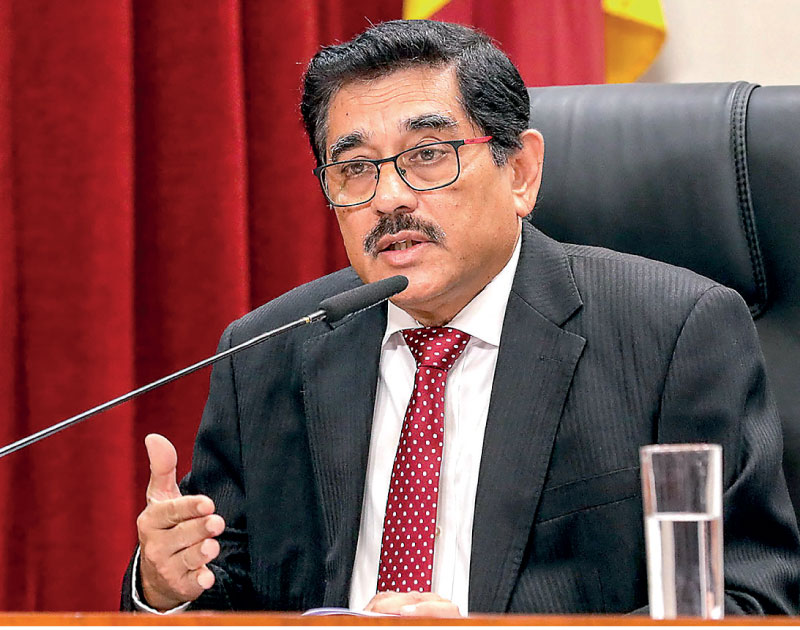Friday Feb 20, 2026
Friday Feb 20, 2026
Monday, 30 October 2023 01:49 - - {{hitsCtrl.values.hits}}

Central Bank Governor Dr. Nandalal Weerasinghe
By Charumini de Silva
In a compelling address, Central Bank Governor Dr. Nandalal Weerasinghe last week stressed that the thorough execution of the Anti-Corruption Act will be a major turning point in Sri Lanka’s economic trajectory. He underscored corruption as a significant contributor to the country’s economic downturn and a deterrent to much-needed Foreign Direct Investments (FDIs).
Addressing a public seminar organised by the Centre for Banking Studies (CBS), Dr. Weerasinghe outlined how the extent of corruption in a country is a crucial metric for foreign investors evaluating potential ventures.
“International trade dynamics, hinge on robust legal frameworks addressing anti-corruption measures,” he added.
Dr. Weerasinghe asserted that inculcating an anti-corruption ethos is imperative for Sri Lanka to embark on a sustainable path of economic development.
Citing the recently unveiled IMF Diagnostic Report, he commended the ensuing discourse for promoting a fresh perspective on anti-corruption practices and advocating for transparent governance mechanisms.
He went on to identify economic recession, inequality, poverty and a decline in societal values as by-products of corruption, painting a comprehensive picture of its far-reaching consequences.
Highlighting corruption as a multifaceted challenge, Dr. Weerasinghe stressed the need for collective efforts and responsibility, heightened vigilance and robust public awareness and support in combating this universal issue.
Keynote speaker, former CIABOC Director-General Sarath Jayamanna PC – a distinguished legal figure, underscored the collective responsibility of both Government officials and private sector leaders in familiarising themselves with the new legislation.
He lauded the comprehensive nature of the Anti-Corruption Act, designed to eradicate fraudulent conduct from the economy.
Referring to the IMF report, Jayamanne lamented the apparent absence of an integrity culture within the Inland Revenue Department (IRD) and Customs, identifying corruption as a rife issue at all levels.
He cautioned that the private sector, which has traditionally operated with certain informal practices, must adapt to the new legal framework.
“This includes holding not only wharf clerks, but also the Board of Directors accountable for any bribery-related charges,” he added.
Jayamanne PC unequivocally defined bribery, encompassing various forms such as financial inducements, holidays, intimate favours, and even air travel, setting a clear standard for ethical conduct.
He called on leaders in the private sector to champion a new set of ethics and standards, positioning them as instrumental agents in encouraging a climate of healthy economic growth. “This collective commitment would be integral in shaping a more prosperous and corruption-free economic landscape for Sri Lanka,” he asserted.